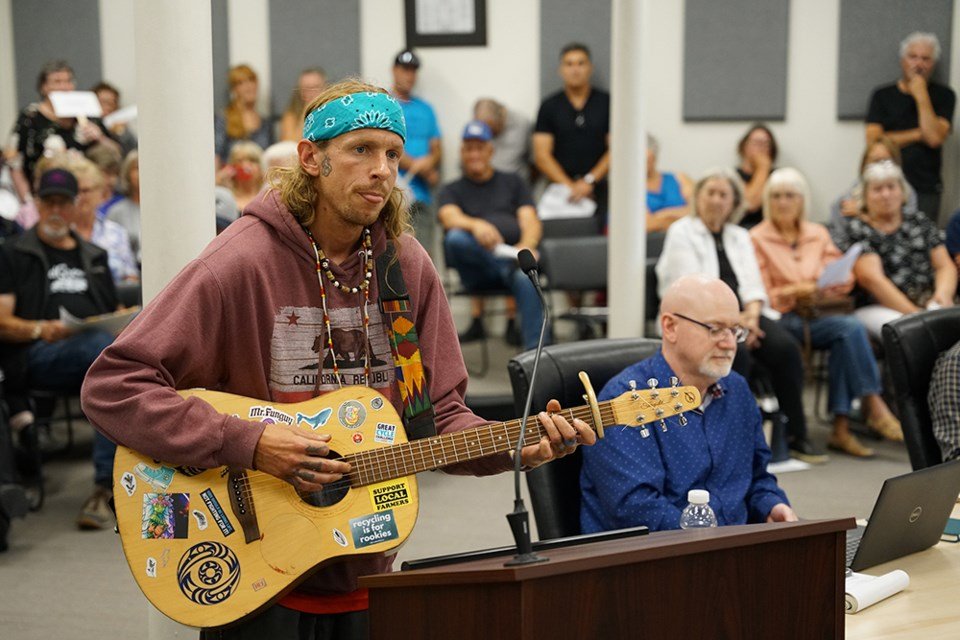Representatives from the Strength of Unified Lives (SOUL) Society urged leaders in Powell River to adopt recovery solutions for addiction during a recent council meeting. The group introduced its mission to bring balance, safety, and dignity to the community.
The meeting opened with a musical performance by an artist known as Flash Being, who shared a story of recovery through music. Afterward, SOUL spokesperson Tony Stich addressed councillors, describing the society as a coalition of people with lived experience, community advocates, and truth tellers. He explained that SOUL’s mission is to expose harm, end silence, and build recovery-focused solutions, driven by care for the future of Powell River.
Stich said the city has felt the results of British Columbia’s harm-reduction policies over the past five years. According to him, residents are seeing more public drug use in parks, schools, and other community spaces. Many have growing concerns about safety and the overall health of the community. He emphasized that SOUL’s concern is not with people who struggle with addiction, but with a system that puts too much focus on harm reduction while not investing enough in prevention and recovery. Addiction, he said, is a disease and not a moral failing, and more real treatment options are urgently needed.
Stich added that local residents are reporting increased disorder, safety problems, and rising deaths linked to substance use. He noted that even some provincial voices now describe harm reduction policies as a failure because they sideline prevention. SOUL is calling on the city to support a balanced four-pillar model that includes prevention, treatment, enforcement, and harm reduction. Stich urged the council to press the province for more funding to bring detox services, recovery beds, and mental health supports directly into Powell River. He also asked for a partnership with SOUL to create a local safety and recovery strategy that protects both families and individuals seeking help.
“This is not about politics,” Stich told councillors. “It is about people, families, and giving everyone the chance for true recovery. Powell River is a strong and compassionate community. We believe it can lead by example.” He painted a vision of a city where people in crisis could walk into a facility and begin treatment the same day, and where public spaces would be safe for families while also offering hope and healing for those struggling with addiction.
Along with Stich, SOUL’s organizers include Dave Marthaller, Brianne Benitz, and Emily Holland. In a written statement, Benitz said the group was created by community members with firsthand experience of addiction and its impact. She explained that current harm-reduction and housing programs often fail to provide lasting change, leaving many residents vulnerable and without clear opportunities for recovery.
Benitz stated that SOUL came together from a shared belief that people deserve better than temporary fixes. Too many, she said, are trapped in cycles of addiction, homelessness, and hopelessness, and some lose their lives without ever being offered a real path to recovery. She added that SOUL’s purpose is to promote accountability, safety, and unity while ensuring voices of lived experience are included in decision-making.
She said the group envisions a community where recovery and dignity are at the center, where people are given tools to heal, grow, and contribute meaningfully. In that vision, safety and compassion work hand-in-hand. SOUL’s mission is to be a united voice for truth and recovery, bringing community input and action into the conversation. The society believes Powell River can become a model for other communities by combining prevention, treatment, enforcement, and harm reduction in a balanced and effective way.

